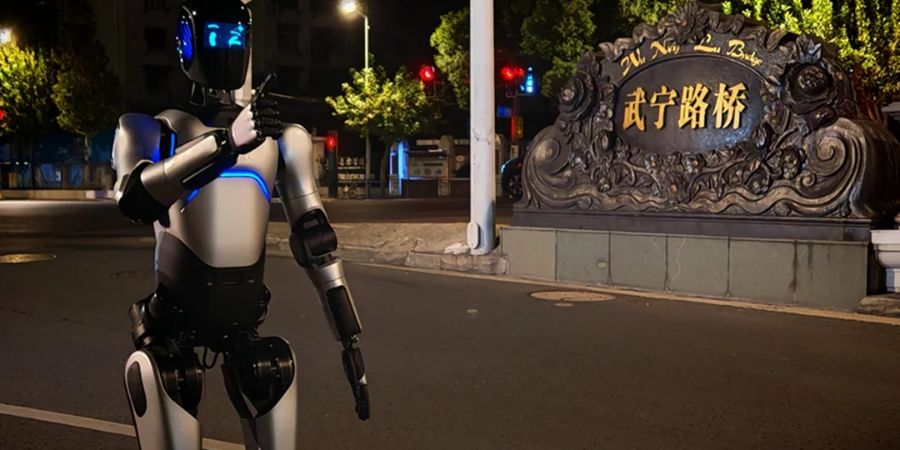Physical Intelligence, an AI startup revolutionizing robotics, has raised $600 million in new financing round which valuated the company at $5.6 billion. This round of Physical Intelligence $600 million funding round is a loud shout of investor confidence in the field of Physical Intelligence, AI technology for robots, and advanced robotics technologies. Funding details were revealed by the sources close to the matter who asked not to be named due to the private nature of the deal.
The CapitalG, Alphabet Inc.’s independent growth fund, led the round. Lux Capital, Thrive Capital, and Jeff Bezos, the founder of Amazon, were the existing investors and they made up the contributions as well. Also, there are new entrants like Index Ventures and T. Rowe Price who are against the round. The reported valuation is a reflection of the new money that has been brought in. To sum up, Physical Intelligence as well as a few investors’ representatives have declined to make a statement, while CapitalG has confirmed its involvement in the AI robotics startup.
A Surge of Interest in Robotics and AI
A renewed wave of interest in robotics has been witnessed in the last few years which is largely powered by the AI breakthroughs in artificial intelligence. The trend is that investors and tech leaders are increasingly putting their money on machines that can carry out tasks in a manner similar to human beings. Besides that, the capital inflow to the sector startups has been very impressive as well. Some other startups such as Figure AI, Skild AI, and Agility Robotics have also been able to raise substantial amounts of robotics funding.
Moreover, big technology firms are not far behind in the race. Google’s DeepMind, Apple, and Meta Platforms are the leading companies that signal their interest in next-generation AI for robotics initiatives powered by AI, which in turn means that this could be the next big thing in the intelligent machines industry.
Founding Vision: AI for Any Robot or Device
Physical Intelligence was started in 2024 by ex-researchers of Google DeepMind and professors from Stanford University and the University of California at Berkeley. Their goal is to create a single AI “brain” that can be the source of any robot or a physical device with a multitude of different applications.
According to CEO Karol Hausman, the company’s objective was to come up with a system of Physical Intelligence that would not be confined to a particular function but could be transferred to different robots and carry out various tasks in the real world. As such, Physical Intelligence is a company that exists at the crossroads of machine learning robotics, AI research, and Physical Intelligence application.
Tackling Unique Challenges in Robotics AI
There are challenges while developing AI for robotics, which are very different from those involved in software-based models like chatbots. Physical Intelligence is all about creating AI which can figure out the world by any means, for example, by seeing, and then it can perform those operations accurately.
Robotics systems, which are not entirely digital, have to deal with the unpredicted physical world, thus they need models that have an idea of space, can handle objects and plan tasks. Physical Intelligence is overcoming these challenges by using reinforcement learning and other flexible training techniques.
Real-World Applications and Testing
Physical Intelligence is already implementing its AI technology for robots on robotic arms to carry out different kinds of tasks. As part of their experiments, these robots performing real-world tasks such as folding clothes, making coffee, and assembling boxes. The company has just introduced a new AI vision model that relies on reinforcement learning to get better over time, quite similar to the way language models work.
Some of the videos that the company has released demonstrate the robotic arms effectively executing the tasks. Physical Intelligence states that the innovative AI technique is capable of increasing by more than two times the throughput, which is basically the number of tasks performed per hour. During the tests, the machines were operating continuously for three hours, thus making an average of three minutes per item, while the completion of a box was done in about two and a half minutes.
Investment in Real-World Data
One of the major differences in the way Physical Intelligence develops its AI models is that it largely relies on real-world robotics data. This is in stark contrast to other AI robotics startup which are experimenting with simulated “world models” in order to create synthetic training data.
Though simulated methods may be less expensive and faster in terms of scaling, they have not been tested much in real-world scenarios. By concentrating on real-world robotics data, Physical Intelligence intends to deliver dependable, efficient robotics systems that can work in the open. This is attracting robotics funding and positioning the company as a leader in investment in real-world AI robotics.
Projecting Forward
As Physical Intelligence has a strong financial base, it can extend its AI and robotics programs without any problem. With such a mix of machine learning robotics methods, tests in the real world, and sky-high goals the company might be able to speed up the invention of robots performing real-world tasks that will become our effortless everyday helpers.
This Physical Intelligence $600 million funding round is a loud and clear call that big money is taking the robotics sector seriously. In that context, Physical Intelligence seems to be in the right place at the right time to not only benefit from this trend but also to influence the future of intelligent machines as a major player. This AI robotics startup is now shaping the next era of next-generation AI for robotics.



